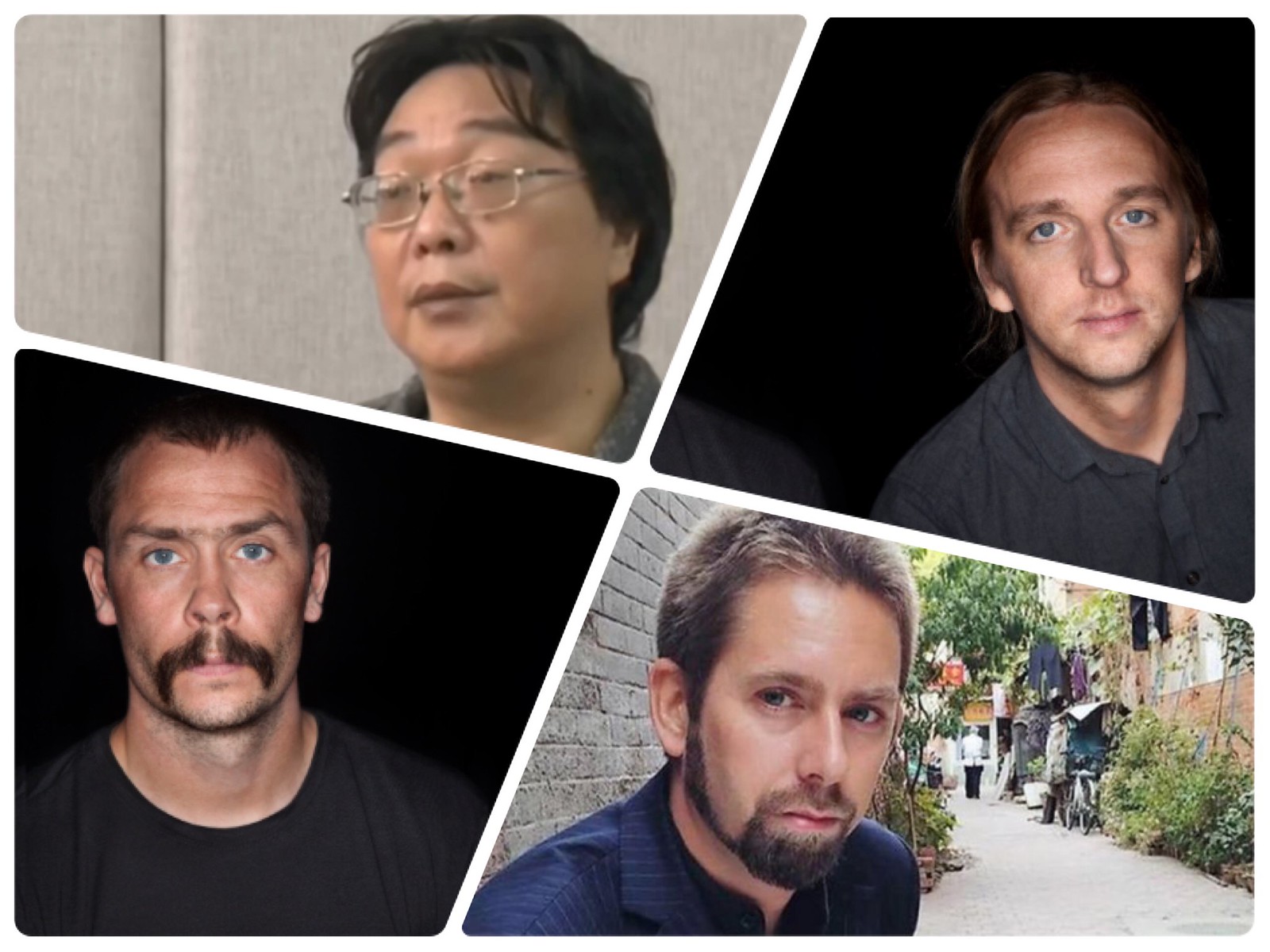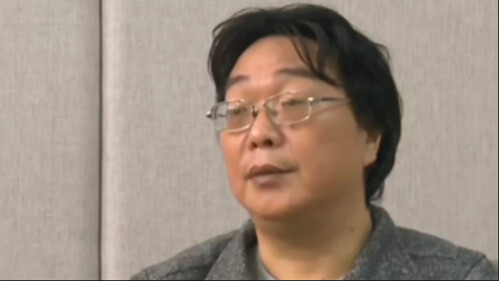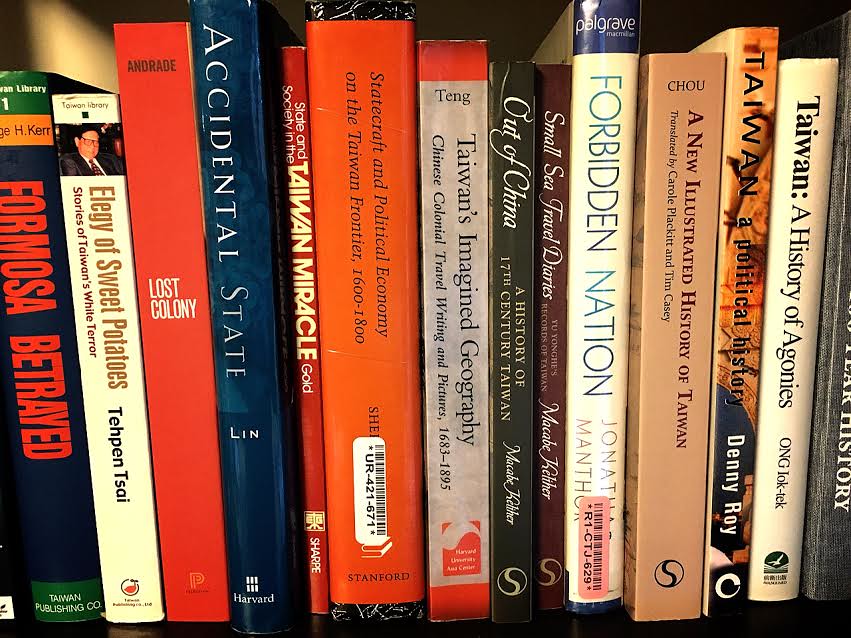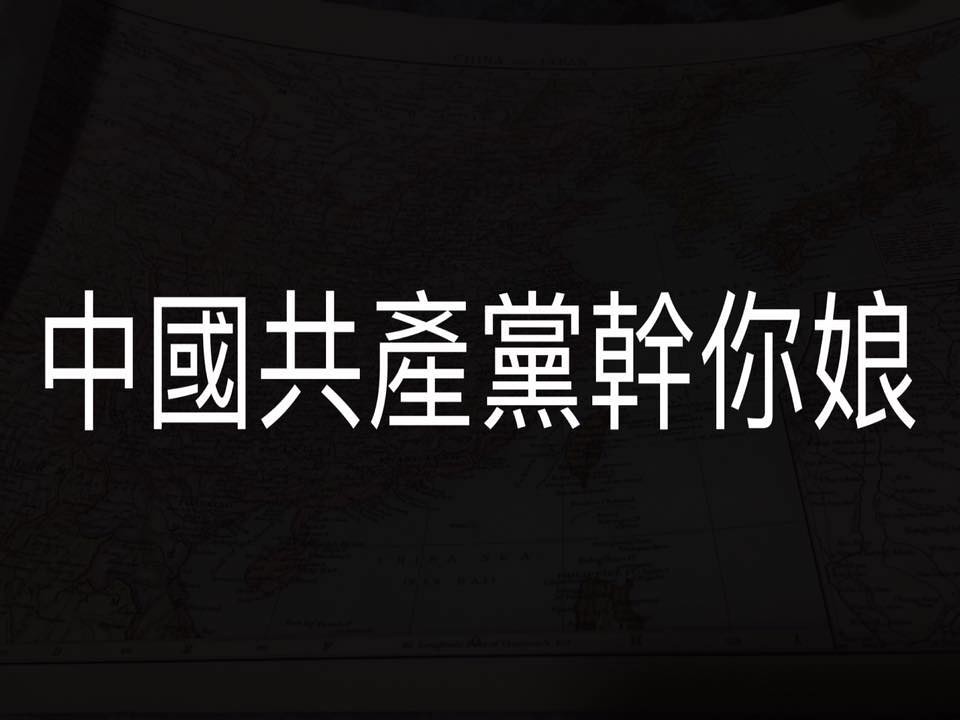 |
| Gui Minhai, Martin Schibbye, Johan Persson, Peter Dahlin |
Taipei-based Swedish journalist Jojje Olsson held a talk last week on the case of Gui Minhai. Gui is a Swedish citizen abducted from Thailand by the Chinese government who, beyond some limited contact with family and Swedish diplomats, has been held basically incommunicado. In fact, the talk itself coincided with the date when Gui had been officially held for exactly three years.
The most informative part of Olsson's talk was his description of what Sweden is doing (or not doing) to get him back. While they are highly involved in closed-door, quiet talks with Chinese officials, it seems odd that these talks are indeed so "quiet": not only has the government not been in regular contact with Gui's daughter, but the case seems to be far more low-profile than it ought to.
This weird silence can be understood in comparison to the government's reaction to two other Swedish journalists who were similarly kidnapped and held for over a year in a foreign country on trumped-up charges. Johan Persson and Martin Schibbye spent over 400 days in an Ethiopian jail for essentially doing their jobs. Similarly, Gui had broken no laws in Hong Kong, where his books (which were semi-biographical tabloid fodder about Chinese leaders) were published, and was in Bangkok when he was taken. Like Persson and Schibbye, he is a Swedish citizen.
This is even more eyebrow-raising, as other European countries (most notably Germany, according to Olsson, but including much of the continent) have not only more publicly called for Gui's release, but have tried to work together to collectively take public action. And yet, Sweden stays on the path of "quiet diplomacy", even though it doesn't appear to be working. Bad publicity scares China. A few polite Swedish diplomats? Yeah I don't think so.
But in Persson and Schibbye's case, there was an uproar in Sweden and the government much more transparently and openly feuded with Ethiopia over their detainment. What's more, Swedish officials were regularly in contact with Persson and Schibbye's family members.
Why are they raising much less of a fuss in dealing with China over Gui Minhai? Why are they not in regular contact with Angela Gui (his daughter)? When Gui was snatched a second time from a Chinese train under the noses of Swedish diplomats who were taking him to Beijing for medical care, why did the reaction seem so muted?
In the international media as well, while the case has been reported by major outlets such as the BBC and the Guardian, the average person (including the average Swedish person, I'd gather) doesn't even know that this is happening. To even your typical well-traveled educated European, the idea that China would abduct foreign nationals in foreign countries might even seem farfetched. But that's exactly what they've done.
The suggested answer is that China is a powerful country, both politically and economically. Ethiopia means little to Sweden; there are fewer risks with starting an openly critical campaign to get abducted citizens back.
I suggest an even more obvious answer. Here is a photo of Swedish citizens with Swedish names, Johan Persson and Martin Schibbye:
 |
| Wikimedia Commons |
And here is a photo of Swedish citizen with a Chinese name, Gui Minhai:
 |
| A screen grab of a screen grab - not many photos are available |
Hmmmmmmmmmmmmm. Do you think it could be...?
Yeah, I do.
The rest of Europe, as noted above, seems to understand the gravity of the situation. I have to wonder why the Swedish government doesn't.
Certainly, China wants the world to think that Gui is Chinese and this is a Chinese matter. Gui is not Chinese; he may have been born in Ningbo, but China doesn't recognize dual nationality. The day Gui became Swedish is the day he stopped being Chinese. Regardless, Chinese state thugs forced Gui to say publicly that he wanted to renounce Swedish citizenship and he "slammed the country" on television. (It is certain that this was a forced statement; there is no possibility that this is truly how Gui feels about the matter).
It is well-known that China thinks of basically every person of Chinese ancestral heritage as Chinese; their actual nationality doesn't seem to matter to the CCP. They do this by threatening Chinese students abroad, taking over Chinese-language media aimed at the diaspora and threatening loved ones who may still be in China, among other tactics.
It's also not a stretch to see that they think they can get away with holding Gui in part because he, well, looks Asian. They are betting on the rest of the world seeing this as a "Chinese" issue, not an international one, and that the world cares less about these things. Basically, China is deeply racist about such matters (thinking everyone with Chinese ancestry is Chinese and therefore subject to CCP control no matter how many generations ago their family left is racist), but they're also betting that we are racist too: that we will care less because Gui is Asian.
Why do I say this? Well, compare China's treatment of Gui to their treatment of another Swede involved in China: Peter Dahlin. Gui published books - legally - that threatened the CCP's reputation. Dahlin is an activist who threatens the CCP by working with human rights lawyers in China.
Dahlin was released after a few weeks. Gui has been held for three years. Dahlin was taken in China, over actions he undertook in China; Gui was taken in Thailand over actions he undertook in Hong Kong.
I'll repeat myself: Peter Dahlin is white and has a European name. Gui Minhai looks Chinese and has a Chinese name.
China didn't want a disappeared European on their hands, so they let Dahlin go. They are betting on you not thinking Gui is European.
Don't believe me? They abducted another foreign citizen too: Lee Ming-che. Lee is Taiwanese, not Chinese. But his name is Lee Ming-che and he looks Asian. Lee was abducted in China, over actions that he took in Taiwan where he broke no laws.
Like Gui, the Chinese government wants you to think Lee is Chinese and that this is therefore a Chinese matter and none of your business. It is no such thing. They want you to fall back on old mental blocks - for you not to care as much about people with Asian faces.
Still don't believe me? Despite Swedish officials being fairly quiet about pressing for Gui's release, China has started a massive diplomatic row over a family of play-acting Chinese tourists and China's ambassador to Sweden is something of a grandstanding jerk: all of this (even according to Olsson) seems to be related to China's attempts to pressure Sweden to just forget Gui Minhai exists, and to shift the spotlight of the Sweden-China disagreement from a Swede abducted by China to a family of shrieking stooges.
Again: China wants you to forget about Gui Minhai, and Lee Ming-che too. They want you to see these foreign prisoners of the Chinese state as "Chinese", so you won't worry your pretty little head about them. The Swedish government, for some reason, seems to be playing along just enough to keep Gui out of the news. The result is that most people seem to be forgetting about him, if they knew he existed at all.
You, however, should do no such thing.




























